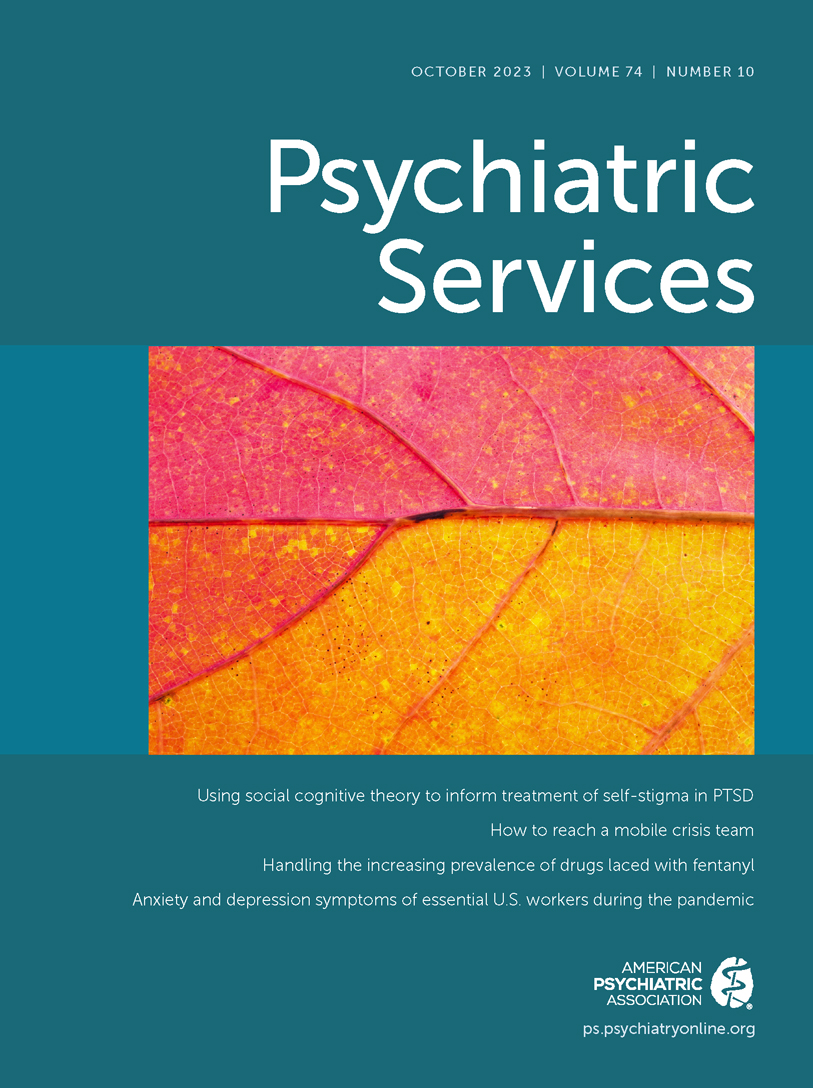Impact of Cofacilitated, Collaborative, Recovery-Oriented Practice Training on Clinical Mental Health Workforce Competencies
Abstract
Objective:
The authors aimed to evaluate the impact of a staff development training program informed by the collaborative recovery model (CRM) on staff outcomes in the largest implementation of CRM undertaken by a public clinical mental health service.
Methods:
Implementation spanned community, rehabilitation, inpatient, and crisis programs for children and youths, adults, and older persons in metropolitan Melbourne, 2017–2018. The CRM staff development program was cofacilitated and coproduced by trainers with clinical and lived experience of recovery (including caregivers) and delivered to the mental health workforce (N=729, including medical, nursing, allied health, lived experience, and leadership staff). The 3-day training program was supplemented by booster training and coaching in team-based reflective practice. Pre- and posttraining measures assessed changes in self-reported CRM-related knowledge, attitudes, skills, and confidence and in the perceived importance of CRM implementation. Staff definitions of recovery were analyzed to understand changes in language related to collaborative recovery.
Results:
The staff development program significantly (p<0.001) improved self-rated knowledge, attitudes, and skills in applying CRM. At booster training, improvements in attitudes and self-confidence in implementing CRM were maintained. Ratings of the importance of CRM and confidence in the organization’s implementation did not change. Definitions of recovery illustrated development of shared language throughout the large mental health program.
Conclusions:
The cofacilitated CRM staff development program achieved significant changes in staff knowledge, attitudes, skills, and confidence and changes in language related to recovery. These results suggest that implementing collaborative, recovery-oriented practice in a large public mental health program is feasible and can result in broad and sustainable change.
Access content
To read the fulltext, please use one of the options below to sign in or purchase access.- Personal login
- Institutional Login
- Sign in via OpenAthens
- Register for access
-
Please login/register if you wish to pair your device and check access availability.
Not a subscriber?
PsychiatryOnline subscription options offer access to the DSM-5 library, books, journals, CME, and patient resources. This all-in-one virtual library provides psychiatrists and mental health professionals with key resources for diagnosis, treatment, research, and professional development.
Need more help? PsychiatryOnline Customer Service may be reached by emailing [email protected] or by calling 800-368-5777 (in the U.S.) or 703-907-7322 (outside the U.S.).



